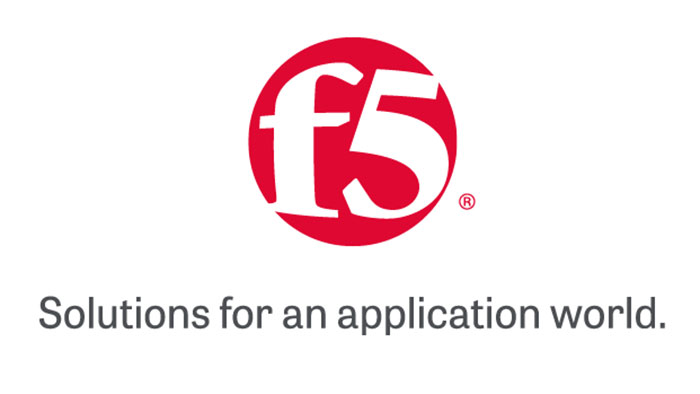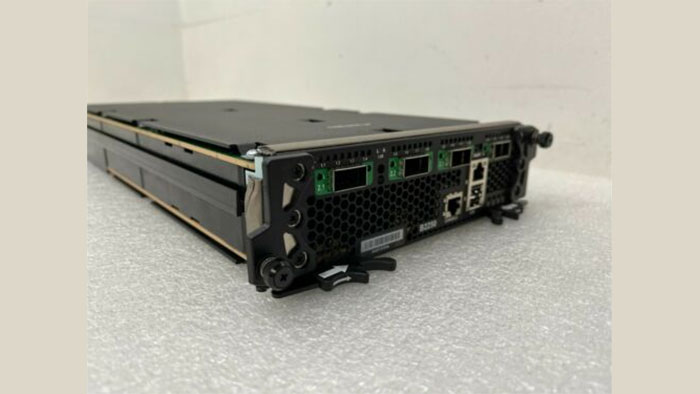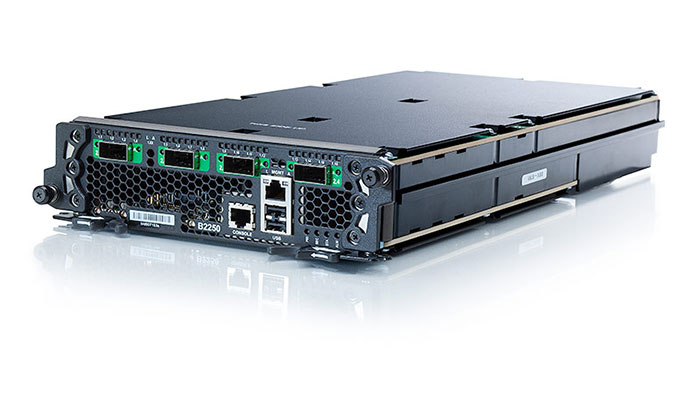VIPRION 2250 License
Home » Security License » f5 » Viprion » VIPRION 2250 License
F5 VIPRION 2250 Blade License
The purpose-built VIPRION 2250 blade offers four 40GbE ports and supports 48 million simultaneous connections with 80 Gbps L4 throughput. In the VIPRION 2400 or 2200 chassis, the 2250 blade offers significant SSL performance, advanced FPGAs, CPUs and memory that efficiently handle and meet the needs of the enterprise data center, private cloud and software-defined network (SDN).
The 2250 blade incorporates enterprise-class Solid State Drive (SSD) storage to improve the hard drives Input / Output performance and reliability, approximately doubling throughput to 155 Gbps. This licensed solution is compatible with VIPRION 2400 and VIPRION 2200 chassis.

F5 VIPRION 2250 key features
By using this licensed solution, we can achieve many features, which we will explain some of these things below.
Scaling to increase flexibility
Capacity can be increased by adding BIG-IP resources in a fully active manner. By scaling the application, this can be done beyond the development of previous equipment. As a result, there is no need for additional and costly standby resources. Application scaling has achieved this feature with two types of public categories. The first category, which is called the application service category, focuses on the scalability and high availability of the application. The second type of category is called equipment service category, which is designed to scale BIG-IP application distribution services.
The application service category provides the possibility of application recovery and connection mirroring for a category of up to 8 different devices. In addition, it is possible to distribute the workload among a group of equipment or virtual instances (without disrupting other services) and its scale can be changed according to needs.
The service category is capable of synchronizing the complete device configuration in a fully active implementation model. In this way, this solution has provided the possibility of continuous policy implementation among up to 32 active nodes. This feature helps to maintain device configuration consistency and thus simplify tasks.
ScaleN architecture provides the maximum possible flexibility for real-time scaling, virtualization and application scaling in device categories.
VIPRION 2400 and VIPRION 2200 chassis
The licensed F5 VIPRION 2250 chassis supports up to four 2150 or 2250 expansion modules. The VIPRION 2200 chassis also supports two 2150 or 2250 expansion modules. The VIPRION 2250 expansion module has 10 processing cores (a total of 20 HTT logical processing cores) and the VIPRION 2150 expansion module has 4 processing cores (a total of 8 HTT logical processing cores).
Note: Only some supported development modules are capable of processing traffic in any chassis. It is not possible to combine different models of the development module on one chassis. Only the supplied optics are supported by the F5.
SuperVIP simplifies networking
VIPRION uses F5 SuperVIP instead of demanding application segmentation. F5 SuperVIP is a virtual IP that can cover several development modules of the VIPRION system. Demanding applications use SuperVIP to control the processing power of all system development modules.
Reducing DDOS attacks
F5 uses the software SYN method and the hardware SYN cookie to protect against a flood of large DDOS attacks. Using ePVA FPGA (Packet Acceleration), VIPRION platforms achieve much better performance than software tools.
As soon as ePVA detects a SYN flood, it activates the F5 SYN Check function to prevent invalid sessions from entering the server or occupying the resources of the development module. SYN Check can be used separately on each virtual IP / application. This means that if the application is attacked, other applications will not be affected. F5 is the only ADC that implements hardware SYN cookies in L4 and L7 full proxy mode.
High power and flexibility with TMOS
The heart of VIPRION is F5’s unique operating system called TMOS, which provides an integrated system for optimal application distribution and provides complete control, visibility and flexibility for the entire service. TMOS helps VIPRION intelligently adapt to the diverse and growing needs of applications and networks.
Cluster management helps reduce management time
Organizations no longer need to spend a lot of time managing their app distribution network. The VIPRION unit is just as simple for admins as an ADC. An extension module is automatically selected as the main extension module and all settings and controls are copied to other extension modules. When a new expansion module is installed, it installs the firmware version from the original expansion module, copies its settings, and starts processing traffic within minutes.
Virtual processing structure
Using configurable partitioning, high-speed FPGAs, and advanced cluster multiple processing (CMP), VIPRION distributes the processing load not only within a single development module, but across entire chassis development modules.
For applications, any desired port can be used on the desired development module. As a result, cabling can be done in a way that makes the system more simple and the failure of the system less.
High performance and security
With increasing demand for connectivity and growing concern about sophisticated and sophisticated attacks, service providers and organizations need a solution that meets these prerequisites. Various VIPRION expansion module options provide high flexibility and scalability. Among these options, we can mention the versatile 2250 expansion module, which is compatible with NEBS (Network Equipment Manufacturing Systems) and provides you with two 100 GbE ports and six 40 GbE ports. In a chassis of eight fully loaded VIPRION 2200 expansion modules, the 2250 expansion module supports approximately 1.2 billion concurrent connections to meet today’s and tomorrow’s Internet of Things.
The 2250 expansion module is the first ADC to provide 100 GbE ports in the QSFP28 size (today’s size for data centers that use 100 GbE) and has the lowest memory footprint and power consumption among the 100 GbE sizes. The 2250 expansion module performs very well for 2K keys with SSL as well as for ECC and increases FPS capabilities.
The advanced FPGAs of the licensed F5 VIPRION 2250 expansion module have significantly improved CPU consumption and expanded whitelisting, blacklisting, and graylisting capabilities. FPGAs’ software-defined hardware capabilities, memory, and hardware lookup help the VIPRION 4450 development module deliver software networking capabilities in a highly efficient manner, optimizing, adapting, and offloading on CPU while simplifying the move to Network Function Virtualization (NFV). The 4450 expansion module supports up to 12 vCMP guests for a multi-tenant application architecture and security service.
Intelligent Traffic Processing
14M L4 HTTP requests per second, 155 Gbps L4, 80 Gbps L7 throughput (C2200), 1 Gbps included compression, 1M L4 connections per second, 2M L7 requests per second, 40Gbps maximum hardware compression, 48M max L4 concurrent connections, 80Gbps L7/L4 throughput (C2400), Bulk crypto: 36 Gbps, Included SSL TPS: 10,000 TPS (2K keys), Maximum SSL TPS: 44,000 TPS (2K keys)

Specification
Hardware DDoS Protection Hardware SYN cookies: 60M SYN cookies per second
Software Architecture: 64-bit TMOS
Virtualization (Max Number of vCMP Guests): 80(4 B2250 blades, 20 per blade)
Processor: Single Intel 10-core Xeon processor (total 20 hyperthreaded logical processor cores)
Memory: 64GB
Hard drive capacity: One 800GB solid state drive
Network interfaces: (QSFP+ 40GBASE-SR4 100m transceivers sold separately), (QSFP+ optical breakout cable assemblies available to convert to 10 Gigabit ports), Four 40 Gigabit (or sixteen 10 Gigabit) fiber ports (QSFP+), One 10 / 100 / 1,000 Mbps Ethernet management port

